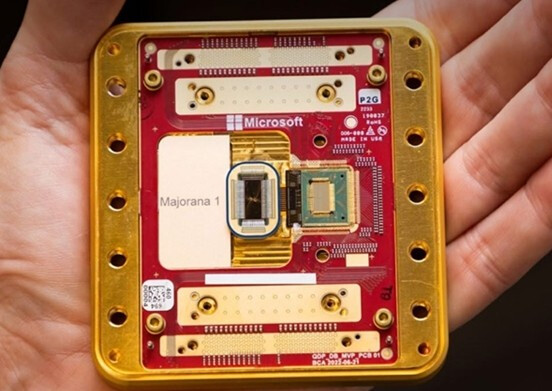
Quantum computers have long been hailed as a "game changer" for their potential to solve currently unsolvable problems, accelerate AI learning, simplify drug and new material development, and encrypt military communication networks. However, the instability of quantum computer chips has hindered their commercialization, leading experts like Nvidia's Jensen Huang to predict a 30-year wait for a usable quantum computer.
Now, Microsoft has announced that the quantum computing era could be realized within years, unveiling its first quantum computer chip, 'Majorana 1'. This chip, about the size of a palm, houses 8 qubits, the quantum equivalent of classical bits. Unlike classical bits that represent 0 or 1, qubits can exist in both states simultaneously, enabling quantum computers to process vast amounts of information instantly.
The challenge, however, has been ensuring the stability of these chips. Quantum computers require extremely low temperatures and are susceptible to external interference, leading to calculation errors. Microsoft claims to have overcome this with its 'topological qubit' technology.
This technology hinges on the development of 'topo-conductors', superconducting materials that protect quantum information from external influences. Microsoft has reportedly succeeded in creating 'Majorana particles' using these materials, promising higher chip stability compared to other approaches.
Microsoft aims to scale this technology to 1 million qubits, the threshold believed necessary for commercialization. The company anticipates commercialization within years, envisioning a future where quantum computers solve complex global challenges.
While some experts remain cautious, pointing out the need for further validation and improvement, Microsoft's breakthrough marks a significant step towards the realization of the quantum computing era.
[Copyright (c) Global Economic Times. All Rights Reserved.]






























